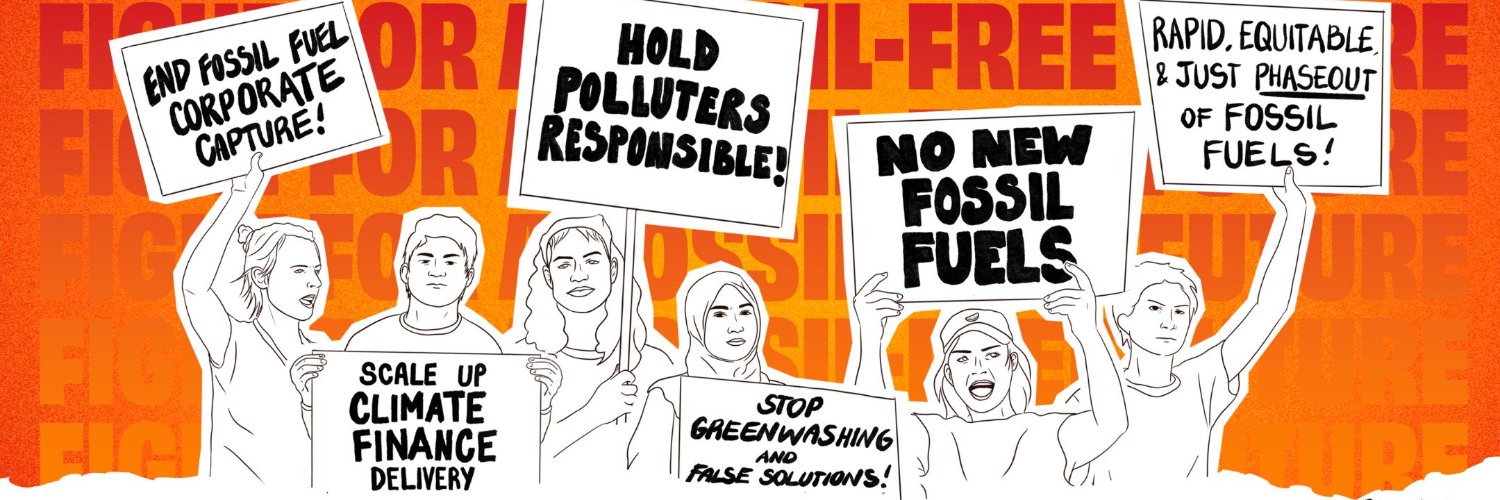
Climate Action Network Zimbabwe (CANZIM)
@CANZIM11
National network of 120+ CSOs, CBOs, & Academia groups fighting the #ClimateCrisisNow to achieve social justice through #PayUp #EndFossilFuels #FastFairForever
@wetlandscop15 Allocate public and climate finance for agroecology-based restoration projects in wetland ecosystems @CANIntl @EMAeep @MinOECW @can_africa
@wetlandscop15 Prohibit industrial agriculture, monocultures, synthetic fertilizers, and pesticides in and around wetlands. Replace with ecologically sustainable farming systems that restore soil health and protect water resources @WetlandOrg @ActionAidZim @MinOECW @CANIntl
@wetlandscop15 Promote Community-Led Agroecological Initiatives. Support wetland-adjacent communities—especially women, Indigenous peoples, and smallholder farmers—in leading agroecological projects @CANIntl @MinOECW @EMAeep @climatenewsrom @can_africa @pelumzim @pesticideaction
@climatenewsrom @wetlandscop15 Integrate Agroecology in Wetland Management Policies: Governments must incorporate agroecological practices into national wetland restoration and conservation frameworks. Promote policies that recognize wetlands as essential for food sovereignty,
Young people must take centre stage in #wetlands conservation and #climateadvocacy. Our voices, our innovations, and our energy are key to protecting these ecosystems and securing a #SustainableFuture for all. #COP15 @wetlandscop15 @CANIntl @WetlandOrg @RamsarConv @can_africa
@wetlandscop15 Promote Wetland Education & Awareness: Support awareness campaigns on the importance of wetlands for biodiversity, water security, and climate Encourage wetland education in school curricula & public engagement @RamsarConv @CANIntl @MinOECW @InfoMinZW @can_africa
@wetlandscop15 Ensure wetlands are prominently featured in the Kunming-Montreal Global Biodiversity Framework implementation @CANIntl @RamsarConv @climatenewsrom @WetlandsInt
@wetlandscop15 Halt Wetland Loss and Harmful Development: Enforce no-net-loss policies for wetlands. Stop conversion of wetlands for agriculture, mining, and infrastructure. Strengthen EIA requirements for any developments affecting wetland ecosystems @CANIntl @RamsarConv
@wetlandscop15 we demand equitable and accessible financing for wetland conservation, especially for the Global South. Establish dedicated wetland climate resilience funds targeting restoration and sustainable use @CANIntl @can_africa @CANEurope @RamsarConv @MinOECW @ecozim
@wetlandscop15 Recognize the customary rights & traditional knowledge of Indigenous Peoples & local communities in wetland governance. Ensure Free, Prior and Informed Consent (FPIC) in wetland development or restoration projects. Promote community-based wetland management models.
@wetlandscop15 Recognize Wetlands in Climate Action. Integrate wetlands into climate change mitigation and adaptation strategies under NDCs and NAPs. Acknowledge wetlands as natural carbon sinks, especially peatlands and mangroves. @CANIntl @can_africa @RamsarConv @WetlandOrg
@wetlandscop15 Strengthen Wetland Protection & Restoration Commitments, Prioritize restoration of degraded wetlands as part of global biodiversity & climate strategies. Ensure all Ramsar Sites of International Importance are adequately funded, monitored, and managed @can_africa
Mainstream wetlands across environmental and development agendas eg NBSAPs, NDCs, NAPs, Climate adaptation and mitigation plans, Nature-based solutions (NbS) frameworks. Synergies with other conventions—CBD, UNCCD, UNFCCC—to deliver stronger outcomes @CANIntl @can_africa
There is no wetland conservation and or protection without securing equitable financing ie #COP15 must emphasize Mobilizing sustainable finance (public, private sector, philanthropic) for restoration and conservation @CANIntl @MinOECW @InfoMinZW @can_africa @TasneemEssop
Inclusive governance and rights-based approaches is critical #WetlandsForOurCommonFuture #COP15Zimbabwe @CANIntl @can_africa @MinOECW @Greenisamissio1
#COP15Zim scale-up commitments on wetland restoration and protection: urgency to reverse wetland loss, restore critical habitats, and designate new Ramsar Sites. Eg spotlighting initiatives like Zimbabwe’s pledge to restore 250,000 ha by 2030 and create five new Ramsar sites